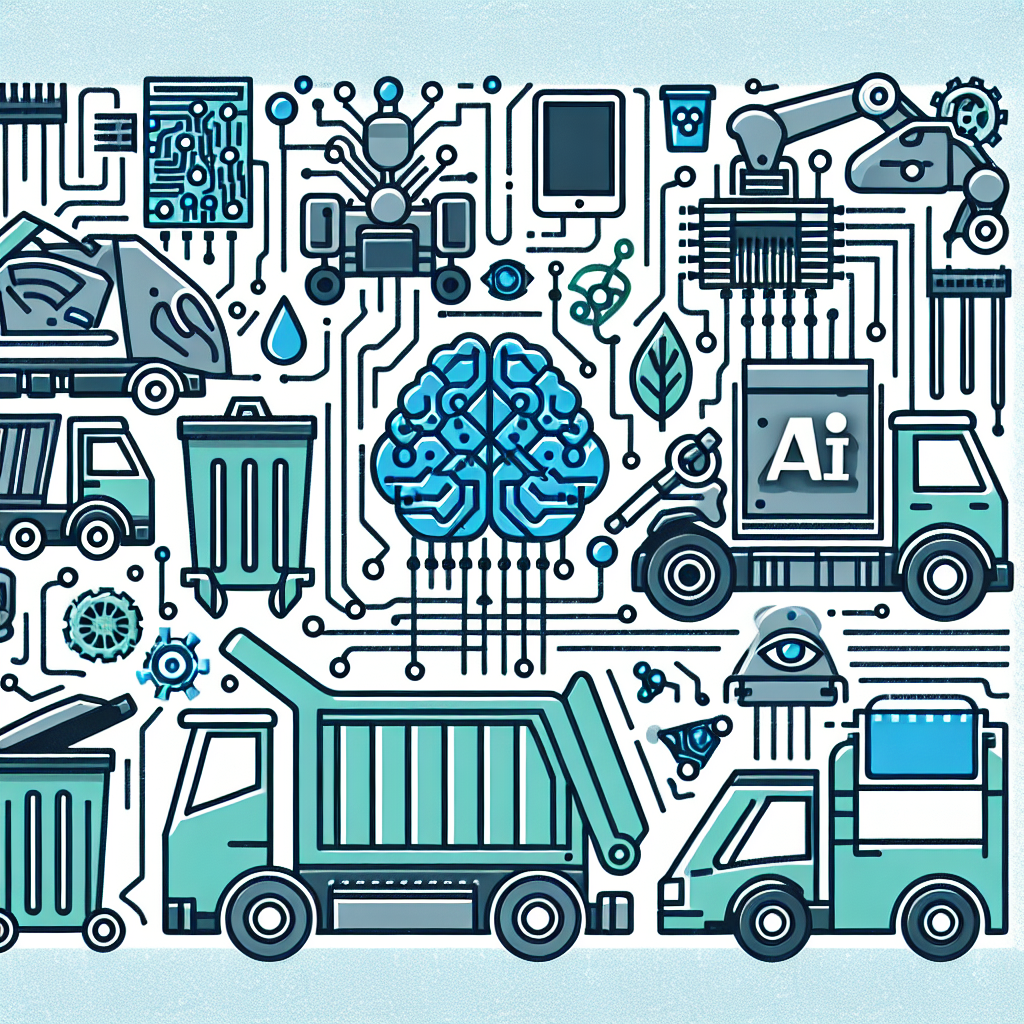In recent years, the rise of artificial intelligence (AI) technology has revolutionized many industries, including waste management. AI-driven solutions for smart waste management are transforming the way we handle and process waste, making the process more efficient, cost-effective, and environmentally friendly.
AI technology is being used in waste management to improve collection routes, optimize recycling processes, and reduce the amount of waste sent to landfills. By using AI algorithms and machine learning, waste management companies are able to analyze data and make informed decisions on how to best manage waste in a more sustainable way.
One of the key benefits of AI-driven solutions for waste management is the ability to predict when waste containers will be full and need to be emptied. By using sensors and real-time data analysis, waste management companies can optimize collection routes and schedules, reducing fuel consumption and emissions. This not only saves money but also helps reduce the environmental impact of waste collection.
Another important aspect of AI-driven waste management solutions is the ability to sort and recycle waste more efficiently. AI algorithms can analyze images of waste materials and identify recyclable items, making the sorting process faster and more accurate. This helps increase recycling rates and reduce the amount of waste sent to landfills.
Furthermore, AI technology is also being used to monitor and manage landfill sites more effectively. By using sensors and data analytics, waste management companies can track the volume and composition of waste in landfills, helping to optimize waste disposal processes and reduce the environmental impact of landfill sites.
Overall, AI-driven solutions for smart waste management are helping to make the waste management process more sustainable, efficient, and cost-effective. By leveraging the power of AI technology, waste management companies are able to better manage and process waste, leading to a cleaner and healthier environment for future generations.
FAQs:
Q: How does AI technology help optimize waste collection routes?
A: AI algorithms analyze real-time data from sensors to predict when waste containers will be full and need to be emptied. This allows waste management companies to optimize collection routes and schedules, reducing fuel consumption and emissions.
Q: How does AI technology help increase recycling rates?
A: AI algorithms can analyze images of waste materials and identify recyclable items, making the sorting process faster and more accurate. This helps increase recycling rates and reduce the amount of waste sent to landfills.
Q: How does AI technology help monitor landfill sites?
A: AI technology uses sensors and data analytics to track the volume and composition of waste in landfill sites, helping to optimize waste disposal processes and reduce the environmental impact of landfills.
Q: Are AI-driven solutions for waste management cost-effective?
A: Yes, AI-driven solutions for waste management are cost-effective as they help optimize collection routes, increase recycling rates, and reduce the amount of waste sent to landfills. This leads to cost savings for waste management companies and a more sustainable waste management process.

